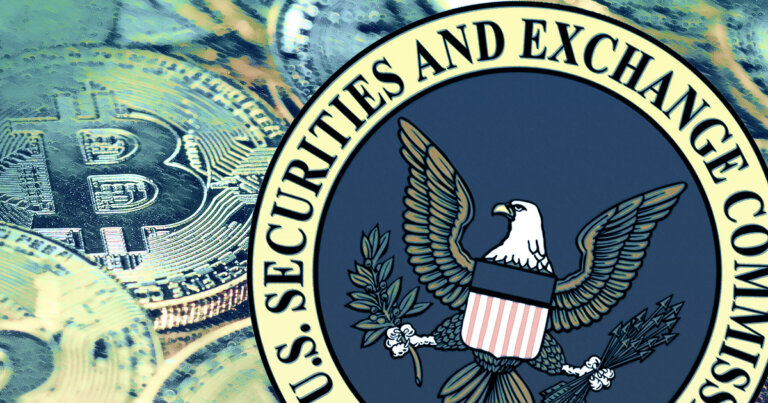 Recent spot Bitcoin ETF applications fall short of SEC’s expectations on a technicality, but are not out of the running yet
Recent spot Bitcoin ETF applications fall short of SEC’s expectations on a technicality, but are not out of the running yet Recent spot Bitcoin ETF applications fall short of SEC’s expectations on a technicality, but are not out of the running yet
The SEC's "rejection" of several spot Bitcoin ETFs, first reported by the Wall Street Journal on June 30, has more to do with clarity of language than rejecting the applications on principle.

Cover art/illustration via CryptoSlate. Image includes combined content which may include AI-generated content.
On June 30, reports emerged that the U.S. Securities and Exchange Commission (SEC) has returned recent spot Bitcoin exchange-traded fund (ETF) applications. The applications, submitted by exchanges on behalf of BlackRock and Fidelity Investments, among others, were deemed not “sufficiently clear or comprehensive.”
An anonymous source cited by the Wall Street Journal shared that the applications failed to identify the spot Bitcoin exchange that would enter into a “surveillance sharing agreement” (SSA) with Nasdaq and Cboe. This agreement is a prerequisite for the SEC, aimed at preventing fraud and manipulation in the underlying market of an asset.
Intermarket Surveillance Group
According to the filings, both Nasdaq and the Chicago Board Options Exchange (Cboe Global Markets), which plan to list many of the recently filed spot-Bitcoin ETFs, did not express an intention to enter an SSA with a spot crypto exchange.
Instead, they clarified their intention to enter SSAs with the Chicago Mercantile Exchange (CME), a Bitcoin futures market of significant size, through their membership in the Intermarket Surveillance Group (ISG).
ISG members include almost every major stock exchange in the traditional finance industry; it is a self-regulatory body that primarily aims to prevent fraud and manipulation by sharing information. The filings also state that the exchanges intend to use the S&P Global Bitcoin Index and Bitcoin Futures market to track price performance.
The exchanges argue that the Bitcoin Futures market is the “leading market for Bitcoin price formation,” and as such, any actor trying to manipulate the price of Bitcoin would be forced to participate in the Futures market, thus becoming subject to surveillance.
Since the CME has adequate measures in place to detect any fraud or manipulation in the market, the SSA via the ISG membership should be sufficient to satisfy the SEC’s concerns since there is precedence for it.
According to one of the filings:
“The Commission has historically held that joint membership in the Intermarket Surveillance Group (“ISG”) constitutes such a surveillance sharing agreement.
The exchanges further argue that the underlying spot markets for commodities, such as gold, and currencies remain largely unregulated. However, this has not prevented ETFs tied to these assets from entering the market, as there are ways to detect manipulation based on futures.
They argue that the precedent for gold ETFs should apply to Bitcoin, which regulators appear to most commonly treat as a commodity.
Further amendments?
Cboe has publicly confirmed that it will refile the applications for the ETFs it intends to list in the coming days based on the SEC feedback, which could potentially mean further changes to the SSA clause and specification of a spot crypto exchange.
However, the options are limited, and choosing Coinbase — which serves as custodian for most of these applications — could backfire, considering its currently embroiled in a court case with the SEC.
It is unclear whether simply adding a spot crypto exchange to the filings will be enough to satisfy the SEC despite the various arguments in the filings.




 Arkham Intelligence
Arkham Intelligence 

 Farside Investors
Farside Investors 
 CryptoQuant
CryptoQuant 
 CoinGlass
CoinGlass 



































































































